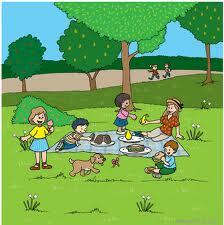There is a subject in the Portuguese language that you may not know, but according to our studies, we are gradually getting to know a little more about it each day. That way, you don't need to think that this is something terrifying, difficult to understand... You will see that everything is easy, easy.
We are talking about verbal agreement, but first let's recall some details that we are already aware of:
Do you remember the subject and the predicate? If not, please note:
My teacher is nice.

Certainly you have already solved the riddle, that is, the subject is "my teacher".
"It's cool"... is what?
Ah! we find the predicate. Do you know why?
For two aspects:
One is because it reveals the information we have about the subject.
The other is because it contains a verb – the verb “to be”, which here is represented by “is”.
Now, we need to understand something very important: the subject is singular, so the verb also remains singular.
But if he were in the plural? What would the verb look like?
It would also go to the plural, that is:
My teachers are nice.
Surely, with this review we made, we can now go on to another study, isn't it?
So which would be correct: today is twenty or today is twenty? Is it two o'clock or is it two o'clock?
We will find out in a moment, because this verbal agreement, which we talked about earlier, is related to some little rules, such as the ones we will know from now on:
* When we are referring to expressions that indicate quantity, that is, measure, weight, price and value, the verb “to be” remains singular. Let's see some examples?
Fifteen minutes of recess is too little.
Two kilos of banana is enough for the picnic.

* When we refer to the idea of time, it can go to the plural or stay in the singular. Let's check it out?
Today there are twenty, that is, not just one day, but twenty.
It's already an hour.

It's three o'clock.
By Vânia Duarte
Graduated in Letters
Kids School Team
